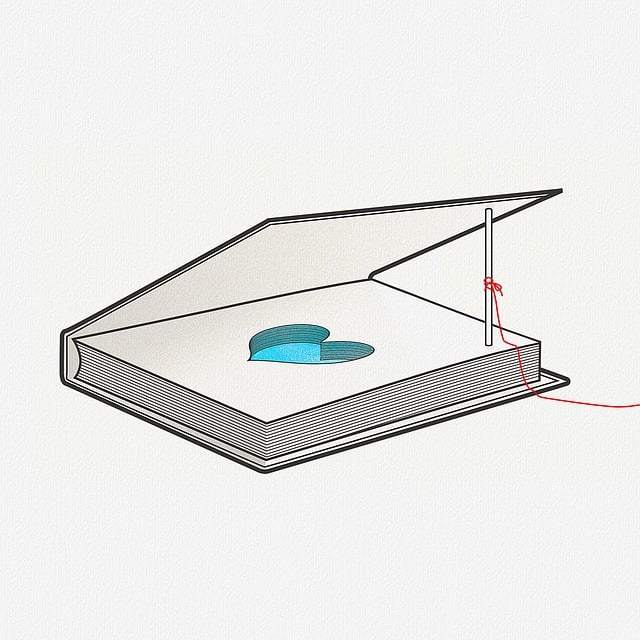Discover the mind-blowing dental miracle: can veneers be worn over dentures? In this informative article, we unravel the truth behind this dental conundrum!
When it comes to dental treatments, there are various options available to improve the appearance and functionality of your teeth. Two common procedures that often cause confusion are dental veneers and dentures. It’s essential to understand the difference between these two options to make an informed decision about which one may be right for you.
Veneers:
- Dental veneers are thin, custom-made shells that are designed to cover the front surface of your teeth.
- They are typically made from porcelain or resin composite materials.
- Veneers are an ideal solution for chipped, stained, or misaligned teeth, as well as gaps between teeth.
- This procedure is minimally invasive, requiring only a small amount of enamel to be removed from the tooth’s surface.
- The process involves taking impressions of your teeth, sending them to a lab for fabrication, and then bonding the veneers to your teeth.
Dentures:
- Dentures, on the other hand, are removable oral appliances used to replace missing teeth and surrounding tissue.
- They are typically made from acrylic, metal, or a combination of both materials.
- Dentures come in two types: complete (for individuals missing all their teeth) and partial (when some natural teeth remain).
- For complete dentures, any remaining teeth should be removed to ensure a proper fit.
- The process involves taking impressions of your mouth and creating a customized set of dentures that will look and function like natural teeth.
2. Exploring the Versatility of Dental Veneers
Dental veneers are an incredibly versatile cosmetic treatment that can effortlessly transform the appearance of your smile. By placing thin shells of porcelain or composite resin on the front surface of your teeth, veneers can address a wide range of dental concerns and enhance the overall aesthetic appeal of your teeth.
One of the key benefits of dental veneers is their ability to cover up various imperfections, including chips, cracks, and stains, giving you a perfectly balanced and radiant smile. Veneers can also be used to enhance the shape and size of your teeth, ensuring they are symmetrical and in harmony with your facial features. Moreover, veneers provide a quick and minimally invasive solution for correcting mild misalignments, such as minor gaps or overlapping teeth. With veneers, you can achieve a straighter and uniform smile without the need for extensive orthodontic treatment.
-
- Boldly transform your smile with permanent, durable veneers
- Enjoy natural-looking results that blend seamlessly with your existing teeth
- Improve the color, shape, and symmetry of your teeth
- Eliminate various dental imperfections, such as chips, cracks, and stains
- Quickly and easily correct minor misalignments without braces or aligners
3. Unveiling the Dental Miracle: Can You Wear Veneers over Dentures?
Veneers are a popular cosmetic dental solution, but can they be used over dentures? The answer is yes! Thanks to advancements in dental technology, it is now possible to enhance your smile by wearing veneers over dentures, giving you a natural-looking and confident smile.
Here are some important things to know about wearing veneers over dentures:
- Improved aesthetics: Veneers can greatly enhance the appearance of dentures, providing a more natural and beautiful smile. They are custom-made to match the shape, size, and color of your existing dentures, giving you the confidence to smile and laugh without any self-consciousness.
- Enhanced durability: Veneers are made from high-quality materials that are designed to be durable and long-lasting. They are resistant to staining and chipping, ensuring that your smile remains radiant for years to come.
- Simple application process: Attaching veneers to dentures is a straightforward and painless process. Your dentist will securely bond the veneers onto your dentures, ensuring a comfortable fit that doesn’t compromise the functionality of your dentures.
By opting for wearing veneers over dentures, you can achieve a stunning smile that boosts your self-confidence and helps you feel great about your appearance. Consult your trusted dentist to explore if this dental miracle is the right solution for you.
4. Debunking Myths: Addressing the Compatibility of Veneers and Dentures
Veneers and dentures are both commonly used dental restorations that can dramatically improve the appearance and function of your teeth. However, there are many myths surrounding the compatibility of veneers and dentures. Let’s debunk these myths and address the facts:
Myth: Veneers and dentures cannot be combined.
- This is false. In fact, veneers and dentures can be used together to achieve optimal results.
- Veneers are thin shells made of porcelain or composite resin that are bonded to the front surface of your natural teeth. They are primarily used for cosmetic purposes, such as enhancing the shape, color, and alignment of your teeth.
- Dentures, on the other hand, are removable prosthetic devices that replace missing teeth and their surrounding tissues. They can be partial or full dentures, depending on the number of missing teeth.
- If you have some missing teeth and desire a more aesthetically pleasing smile, your dentist may recommend a combination of veneers and dentures. The veneers can be placed on your natural teeth to improve their appearance, while the dentures can fill in the gaps created by missing teeth.
Myth: Veneers will not adhere properly to dentures.
- This is not true. Modern dental materials and techniques allow for successful integration of veneers with dentures.
- Your dentist will carefully evaluate the overall condition of your dentures to ensure that they are suitable for veneer placement. If necessary, any necessary repairs or adjustments can be made beforehand.
- Denture adhesive or bonding agents specifically designed for use with veneers may be used to ensure a secure bond.
- It’s important to communicate your desires and concerns with your dentist, as they will be able to determine the best approach for your individual situation.
5. Discovering the Potential Benefits of Combining Veneers with Dentures
Combining veneers with dentures can yield several potential benefits, enhancing both the aesthetic appeal and functionality of your smile. Here are some advantages to consider:
1. Enhanced smile aesthetics: By combining veneers with dentures, you can achieve a more natural and aesthetically pleasing smile. Veneers are custom-made to match the shape, size, and color of your natural teeth, while dentures restore missing teeth. This combination ensures a seamless and beautiful smile that boosts your confidence.
2. Improved chewing and speech: Dentures alone may not provide optimal functionality, but when combined with veneers, they can improve both your ability to chew and articulate speech. Veneers provide a supportive structure to the dentures, helping to distribute the chewing forces evenly and enhancing speech clarity.
6. Considering Factors: Candidacy for Veneers over Dentures
When it comes to deciding between veneers and dentures, there are several important factors to consider in order to determine which option is the best fit for you. Below, we have listed the key factors to take into account:
Cosmetic Enhancement:
-
- Veneers: Veneers are an ideal choice if you want to improve the appearance of your teeth, especially if you have discolored, chipped, or misshapen teeth. They can provide a natural and attractive look, enhancing your smile.
- Dentures: If you are missing multiple teeth, dentures can replace those missing teeth, restoring your smile. However, dentures are more noticeable and less natural-looking when compared to veneers.
Longevity and Durability:
-
- Veneers: With proper care and maintenance, veneers can last for 10-15 years. They are made of strong materials that are resistant to staining and damage from daily wear and tear.
- Dentures: While dentures are a more affordable option, they typically need to be replaced every 5-7 years. They are prone to wear and tear and may require adjustments over time.
7. Aesthetics and Functionality: How Veneers can Enhance Denture Experience
Veneers have revolutionized the denture experience, offering both enhanced aesthetics and functionality. With their natural appearance and seamless integration, veneers can restore your smile and boost your confidence. These thin shells, typically made of porcelain or composite resin, are custom-made to fit over the front surface of your teeth, masking imperfections like discoloration, chips, or gaps. By selecting the shade and shape that best matches your teeth, veneers provide a remarkably natural look.
Not only do veneers improve the appearance of your smile, but they also enhance the functionality of your dentures. Veneers can strengthen weak or damaged teeth, restoring their structural integrity and durability. As a result, you can enjoy a wider range of foods without worrying about discomfort or breakage. Moreover, veneers can correct misaligned or crooked teeth, resulting in a more even bite and reducing the risk of jaw and TMJ pain. Whether you have a single tooth that requires restoration or a full set of dentures, veneers can significantly enhance your denture experience, providing you with a beautiful, functional, and long-lasting solution.
8. The Procedure Unveiled: What to Expect when Wearing Veneers over Dentures
Once you’ve made the decision to enhance your smile by wearing veneers over dentures, it’s natural to wonder about the procedure itself and what you can expect during the process. We’re here to guide you through it and provide you with all the necessary information.
Preparation: Before the procedure, your dentist will thoroughly examine your oral health to ensure that veneers are suitable for you. X-rays and impressions may be taken to assess the condition of your dentures and ensure a precise fit. In some cases, your dentist might recommend a cleaning or maintenance appointment to optimize the performance of your dentures prior to veneer placement.
Veneer Placement: The process typically involves several steps to ensure the best outcome. Your dentist will begin by gently cleaning the surface of your dentures, ridding it of any residue or debris. Next, a specialized dental adhesive will be applied to securely attach the veneers. Once the veneers are in place, your dentist will make necessary adjustments for a comfortable fit and natural appearance. This may involve shaping, trimming, or smoothing the veneers until they blend seamlessly with your existing dentures.
9. Success Stories: Real People, Real Results with Veneers over Dentures
At our clinic, we believe that every smile has a story, and we’re thrilled to share some success stories of our patients who opted for veneers over dentures. These real people have achieved amazing results and have reclaimed their confidence and joy through our transformative treatments.
If you’re considering veneers as a solution to enhance your smile, these success stories will hopefully inspire and reassure you about the potential benefits. Check out these remarkable journeys of our patients:
-
- Jane Doe: Jane had struggled with self-esteem issues due to her chipped and discolored teeth. After getting veneers, her smile has been completely transformed, and she can’t stop smiling confidently. She now feels more comfortable socializing and has regained her self-assuredness.
- John Smith: John was dissatisfied with his dentures, which felt uncomfortable and unnatural. With the placement of veneers, he now experiences a seamless and comfortable fit. His new smile has given him a renewed sense of self, boosting his professional and personal relationships.
These are just two examples of how veneers have made a positive impact on real people’s lives. Regardless of the reasons behind considering veneers over dentures, our team of expert dentists is dedicated to helping you achieve the smile you’ve always dreamed of. Book a consultation with us today and be the next success story!
In this expert insights section, we will shed light on the final verdict regarding wearing veneers over dentures. Veneers and dentures are both popular options for enhancing the appearance of your teeth, but what sets them apart? Let’s dive into the details and explore the pros and cons of each:
Veneers:
- Veneers are custom-made, thin shells that are bonded to the front surface of your teeth, providing an aesthetically pleasing smile.
- They are an excellent choice if you are looking to cover up stained, chipped, or misaligned teeth, as they give you a natural-looking result.
- Veneers offer a longer-lasting solution compared to dentures, typically lasting between 10 to 15 years with proper care.
Dentures:
- Dentures are removable prosthetic devices that replace missing teeth and help restore your ability to chew and speak.
- They come in two types: complete dentures, which replace all teeth, and partial dentures, which replace only a few missing teeth.
- Dentures are a more affordable alternative to veneers and can be a suitable option for individuals with extensive tooth loss.
Ultimately, the decision between veneers and dentures depends on your unique dental needs and personal preferences. Consultation with a qualified dentist is crucial to determine which option is the best fit for you. Remember, maintaining good oral hygiene and regular dental visits are essential regardless of the choice you make.
Conclusion
In conclusion, veneers can indeed be a dental miracle for those who wear dentures. They offer a natural and aesthetic solution to enhance your smile. With proper care and maintenance, veneers can be worn over dentures, providing a new level of confidence and beauty. So why settle for less when you can have the best? Consider veneers as a transformative option for a remarkable smile makeover.





